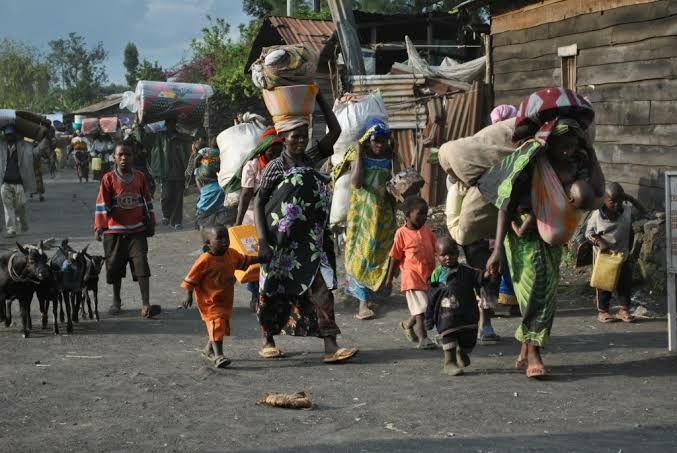In the next few months, 5,000 refugees who escaped violence in the Democratic Republic of the Congo (DRC) will return home voluntarily from Zambia.
The United Nations High Commissioner for Refugees (UNHCR) announced on Tuesday that the first 100 people had left for the Democratic Republic of the Congo.
According to UNHCR, security in DR Congo’s Pweto territory, Haut-Katanga province, has improved sufficiently for them to return home in safety and dignity.
“As security in some regions of Haut-Katanga has improved, an estimated 20,000 refugees have spontaneously departed Zambia during 2018 to return to their areas of origin – primarily to Pweto territory,” UNHCR spokeswoman Babar Baloch told journalists in Geneva.
Inter-ethnic violence and fighting between Congolese security forces and militia groups in portions of southern DRC in 2017 uprooted populations.
According to UNHCR intention surveys conducted in October, 4,774 refugees expressed a desire to return to DRC voluntarily.
The voluntary repatriation, which will continue until 2022, is part of a 2006 tripartite agreement between UNHCR and the governments of Zambia and the Democratic Republic of the Congo.
Partners are assisting returning refugees by providing voluntary repatriation documents, expedited immigration clearance, health screening, and school certificates, allowing children to resume their education in the Democratic Republic of the Congo.
Meanwhile, the UNHCR is collaborating with DRC authorities and development partners, such as the Catholic aid confederation CARITAS, to advance reintegration projects, such as education, health, and agriculture, and to ensure safe and dignified returns.
Currently, 18,000 Congolese refugees farm alongside 5,000 Zambians in 11 integrated villages at the Mantapala settlement, which was established in early 2018 to house displaced people.
While Zambia continues to host 103,000 refugees, asylum seekers, and former refugees, including over 63,000 from the Democratic Republic of the Congo, approximately 20,000 Congolese have returned home in the last three years.
The United Nations Children’s Fund (UNICEF) and the World Food Programme (WFP) are assisting with repatriation efforts.
The two organizations have provided buses and trucks to aid in the transportation of refugees, their belongings, and food for the journey. Families will receive cash grants to assist them in resuming their lives in the DRC.
“UNHCR will disinfect the buses, provide face masks and hand sanitizers, and work with the authorities to ensure that COVID-19 prevention measures, such as loading buses to half capacity, are followed,” Baloch said.
UNICEF has enhanced water and sanitation facilities at the Chiengi district receiving center, where returning refugees are staying for the night to complete immigration documents before starting on the final leg of their journey home.
In addition, Zambian authorities are providing rapid COVID-19 tests at the Mantapala Rural Health Centre for returning refugees.

















Discussion about this post